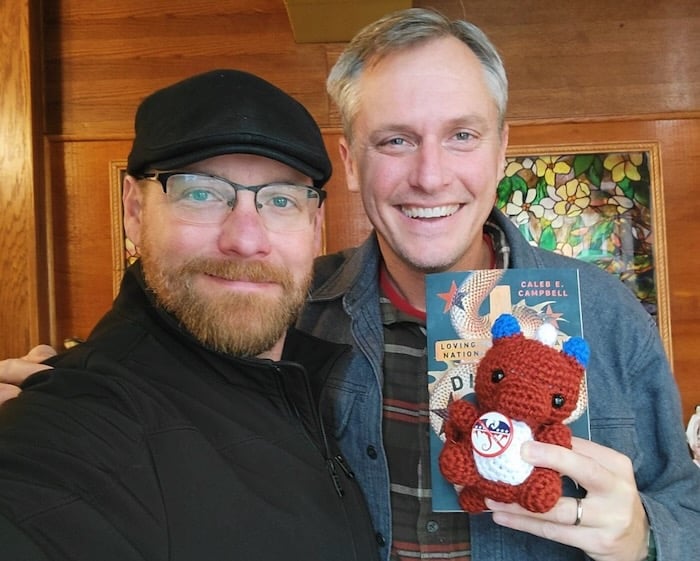Lanes and Lines
Recognizing the times and what they might require of us

What do these days require of us? As Nazi flags are paraded through a city in broad daylight. As Black, Hispanic, and LGBTQ people are harassed by text message and told to report for picking cotton, that they’ve been selected for deportation, or destined for a reeducation camp. As the president-elect confirms his plans to mobilize the military to carry out mass deportations. As violent and predatory men are selected for positions of immense power. What do these days ask of us?
Last week, with Rabbi Joshua Heschel’s help, I suggested that considering history from God’s perspective can open enough of a gap between our experiences and interpretations of those experiences to help us find our footing and begin imagining possibilities we’d otherwise overlook during these uncertain days. I wonder if this is what the psalmist had in mind when, after lamenting the “prosperity of the wicked,” he writes in Psalm 73:16-17,
“But when I thought how to understand this,
it seemed to me a wearisome task,
until I went into the sanctuary of God;
then I perceived their end.”
For those who can confess, “I have made the Lord God my refuge,” there is the possibility of vision and wisdom even in the most uncertain and threatening circumstances. This isn’t an escape from reality but a way to approach reality purposefully, with the simple fact of God’s presence providing the foundation we need.
To be more practical, I’ve been thinking about how the sanctuary of God, or how considering history from God’s perspective, can help identify our lanes and our lines.
By lanes I mean discerning what our particular responsibilities are during chaotic stretches. While so much around us seems urgent these days, each of us is acutely limited by the basic fact of our humanity. However hard we might try to transcend them, we are bound by limited attention, affection, and aptitudes. We get tired, overwhelmed, and distracted. If we’re not careful, the sense of urgency will leave us debilitated and trending toward apathy.
I am, for example, vaguely aware of the new administration’s plans to employ multiple levers of government to enforce a policy of mass deportation. But I am neither an immigration attorney nor a policy expert and aside from paying attention to those who are and loving my actual immigrant, migrant, and refugee neighbors, there’s little I can do to effect systemic change in our immigration system. The knowledge that our broken immigration policies will be leveraged by the incoming administration to harm and harass vulnerable people combined with my lack of expert knowledge about these policies can quickly leave me overwhelmed and disengaged.
But while I’m not an immigration expert, I am a pastor. That’s my lane. And it ends up that my pastoral lane does intersect with the attempts by powerful people, particularly when they associate themselves with Jesus, to slam the doors on widows, orphans, and foreigners. I get to be a person who makes plain Scripture’s mandate of hospitality and who speaks directly against any use of any person to score political points.
And what about my lines? Here I’m thinking about how important it is to be clear and convinced about what acts of injustice transgress the moral commitments I share with other Christians. While I’m not an activist, over the years lines have been crossed by powerful people which have compelled me to join others in the streets, stage die-ins at busy intersections, and shut down the gun shop which supplies the most weapons used in Chicago shootings. While I’d rather be preparing a sermon, praying with someone in the hospital, or listening to a church member wrestle with the demands and joys of following Jesus, in those line-crossing moments I’ve necessarily added protest to my pastoral responsibilities.
It seems to me that by considering God’s experience of history or, more devotionally, entering the sanctuary of God, you and I have the ability to discern our times and the faithful responses that might be required of us. I’m figuring out my lanes and lines. How about you?
(Photo credit: Pixabay.)
Pastoral Reflections on the Post-election Landscape

I hope you’ll join my good friend Shaun Marshall and me on Monday afternoon for an Instagram conversation about the election. Shaun is one of the wisest people I know and I expect this will be an encouraging and challenging discussion reflecting on where we are and imagining where we might choose to go.
Tony Campolo, the “Evangelist to Evangelicals”
Tony Campolo, the sociologist, author, and well-known Christian speaker, died this week. I never met Campolo, but in 1997 I was on my hands and knees a few feet behind him as he preached.
I spent the summer between my college sophomore and junior years working with a church youth ministry near Washington D.C. The team I worked with was recruited to help with a youth conference that took place on the mall. Just after the event began one of those huge D.C. thunderstorms rolled through chasing everyone off the mall and soaking the outdoor stage and all of its electrical wiring. It took a while once the storm cleared, but eventually the sound team rigged one mic to work and so, as the other big-name speakers and bands bowed out, Campolo bounded onto the slippery stage and preached a version of his famous “It’s Friday but Sunday’s Coming” sermon.
I was crawling around the stage with soggy towels, dodging cables and wires and doing my best to push the water away, and there, preaching to hundreds of wet and rapt teenagers was Campolo, urging them to take Jesus seriously and give their lives on behalf of the least of these. I’ll never forget it and I bet at least a handful of those young people never did either.
The View From Here

I’ve admired Pastor Caleb Campbell and his important work on Christian Nationalism for a couple of years. He was in town this week and we finally got to meet in person. If you’ve got friends or family who’ve been sucked into the morass of nationalism, Disarming Leviathan is the book for you!